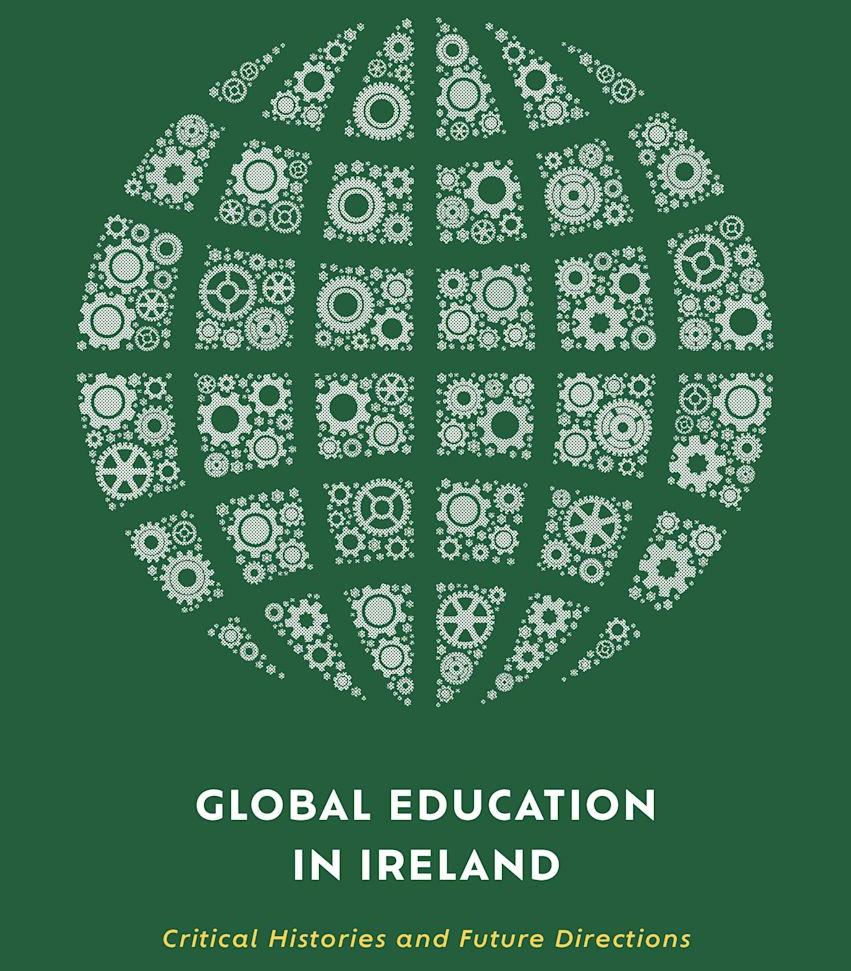

New book, Global Education in Ireland: Critical Histories and Future Directions, explores the history of global education policy and practice
A new book brings together leading global education practitioners and academics to provide a history of global education (GE) in Ireland, including development education; education for sustainable development; global citizenship education; human rights education; intercultural education; anti-racism education and climate change education. It critically explores the history of global education policy and practice in the Irish context from different perspectives from across the education spectrum in Ireland, and internationally.
In her chapter, ‘(Re)claiming Citizenship in Global Education’, School of Law and Government’s Dr Niamh Gaynor examines the recent citizenship turn in global education policy and practice under the guise of global citizenship education (GCE). Noting that theories and practices of citizenship remain highly contested within GCE, she highlights both the opportunities and the limitations of this turn. Her analysis highlights the dominance of neoliberal approaches which, privileging market imperatives, fail to acknowledge the multiple exclusions of citizenship, notably the persistence of structural and institutional inequalities and injustice, narrowly framing acts of citizenship as individualised actions and behaviours. Highlighting citizenship’s opportunities, Dr Gaynor calls for a reclamation of the critical, disruptive and transformative roots of citizenship theory and practice.
The Institute of Education’s Dr Audrey Bryan considers the implications for GE of the increasing alignment of SDG 4.7 (the SDG target that addresses sustainable development, global citizenship, etc.) with social-emotional learning (SEL), a movement concerned with cultivating social-emotional or ‘human-centric’ skills, attributes, competencies, values and traits deemed necessary for ‘life-effectiveness’ in the twenty-first century. Her chapter documents SEL’s incompatibility with GE’s original, radical formulation as a radical form of pedagogy that addresses the structural causes of poverty and injustice in the Global North and South. Dr Bryan argues that the foregrounding of personal qualities, competencies, dispositions and affective regulation – which are major features of how global citizenship – is increasingly framed, amplifies neoliberalism and reduces global citizenship to a set of ‘economically indispensable’ social-emotional competencies which has major implications for the understanding and practice of solidarity and the pursuit of global justice and equality. She advocates for a GE which resists the ascendancy of neoliberalism in education and the corresponding reimagining of global citizenship which is currently underway in order to reclaim GE’s radical roots.
The Institute of Education’s Dr Benjamin Mallon explores the ebbs and flows of the central concepts of peace, justice and rights to GE in Ireland over the last sixty years in his chapter entitled ‘Rights, Peace and Justice in Global Citizenship Education in Ireland’. It discusses three events, as analytical tools, to consider how GE has influenced, and been influenced by, the surrounding discussions and debates. Rights are considered in relation to the United Nations Convention on the Rights of the Child (CRC), adopted by the United Nations in 1989. Peace is considered in relation to the Belfast/Good Friday Agreement signed in 1998. Justice is explored through the case of the climate strikes of 2019. Dr Mallon looks at the fluctuating nature of these key concepts, in relation to policy and practice, recognising aspects of harmony and dissonance with conceptualisations of GE, before considering the potential of GE in Ireland, at the nexus of rights, peace and justice, to represent liberatory education.
The book was edited by Dr Eilish Dillon (Maynooth University), Dr Niamh Gaynor (Dublin City University), Dr Gerard McCann (Queen’s University) and Stephen McCloskey (Centre for Global Education in Belfast) and it is published by Bloomsbury.
